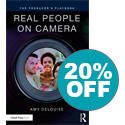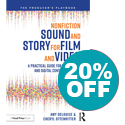 I was thrilled that The Social Network won Oscars for original music score and editing. Both of these crafts are essential, in my view, to successful narrative film. And they are critical elements to my most successful online and event video productions, too.
I was thrilled that The Social Network won Oscars for original music score and editing. Both of these crafts are essential, in my view, to successful narrative film. And they are critical elements to my most successful online and event video productions, too.
So often, I find that music and editing get short-changed. Clients want fast turnarounds–to get something on YouTube or their website–and these crafts get left by the wayside. But the projects that are most effective–whether for issue advocacy, education, or fundraising–are almost always those in which I’ve been able to spend the time crafting the edit and working with a composer on an original score.
What makes the difference?
On the editing side, it’s having time for multiple refinements. Not those that just wear down the original concept and don’t improve it. But those that are significant stylistic approaches–montage sequences, transitions, pacing–that result in better impact of the visuals. An edit that I’ve been able to spend time designing, and my editor and I have had the time to evolve creatively, is one that will be stronger for that collaboration. At a bare minimum, one should budget one edit day for every finished minute of end-product.
On the music side, a composed score matches the nuances of emotion and picture perfectly. So often, clients want to rely on stock music for budget reasons. And yet, it often takes more editing time to make stock music support the images, pacing and emotional content without seeming to be overbearing or inappropriate. Often stock music cuts have just one set of instrumentation per cut, for example. Whereas in a composed score, I can create a transition from a powerful, fast-paced montage to a slower-paced sequence by using different instruments but maintaining the same musical theme, for continuity. I’ve been very effective with library music, too, but it takes significant time to search for the right cuts, with the right pacing and instrumentation, and having a specific (editing) game-plan for weaving them all together. Whether using stock audio or custom, having time to properly mix it–along with nterviews, narration, and “natural sound”–also helps keep distractions to a minimum and reinforces a production’s goals.
So if your story has an emotional component–as every good narrative should–then you need to strongly consider adding the time and budget for effective editing and music scoring. Your show will have added impact, which can change bottom-line results from a “nice video” to something that changes minds, or opens checkbooks.




